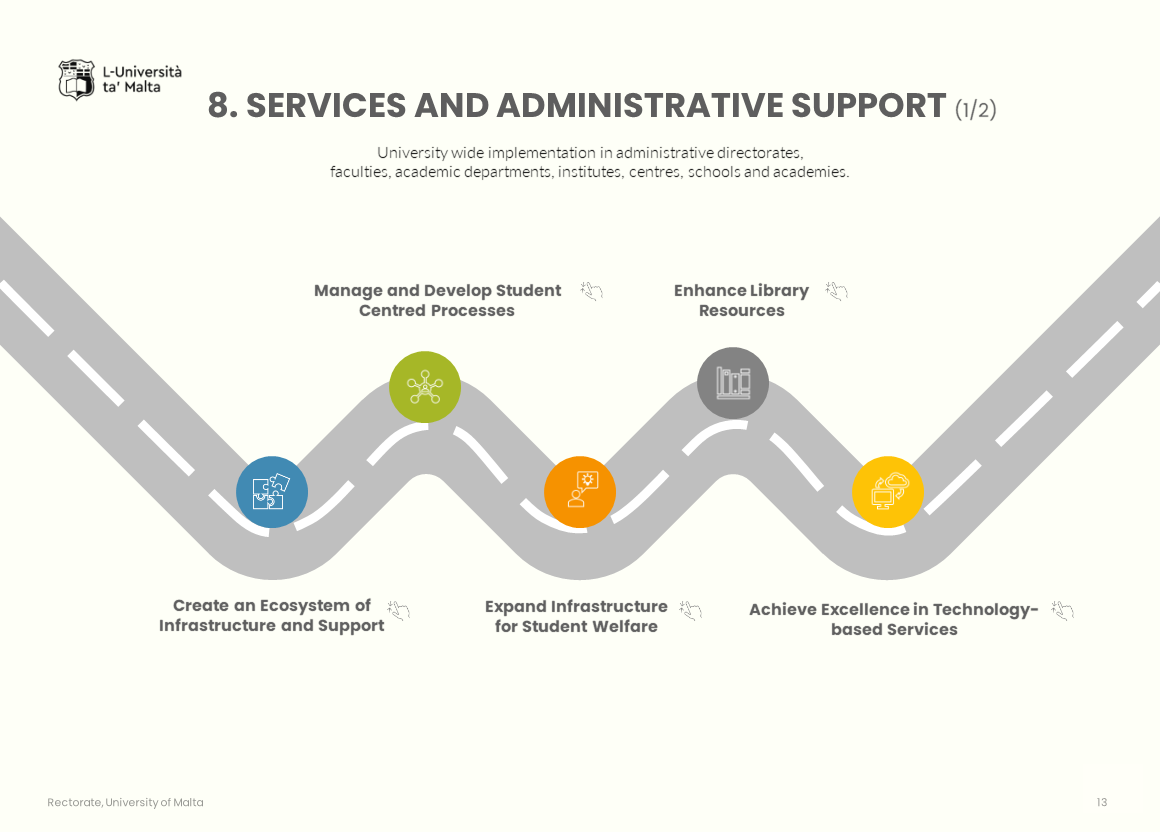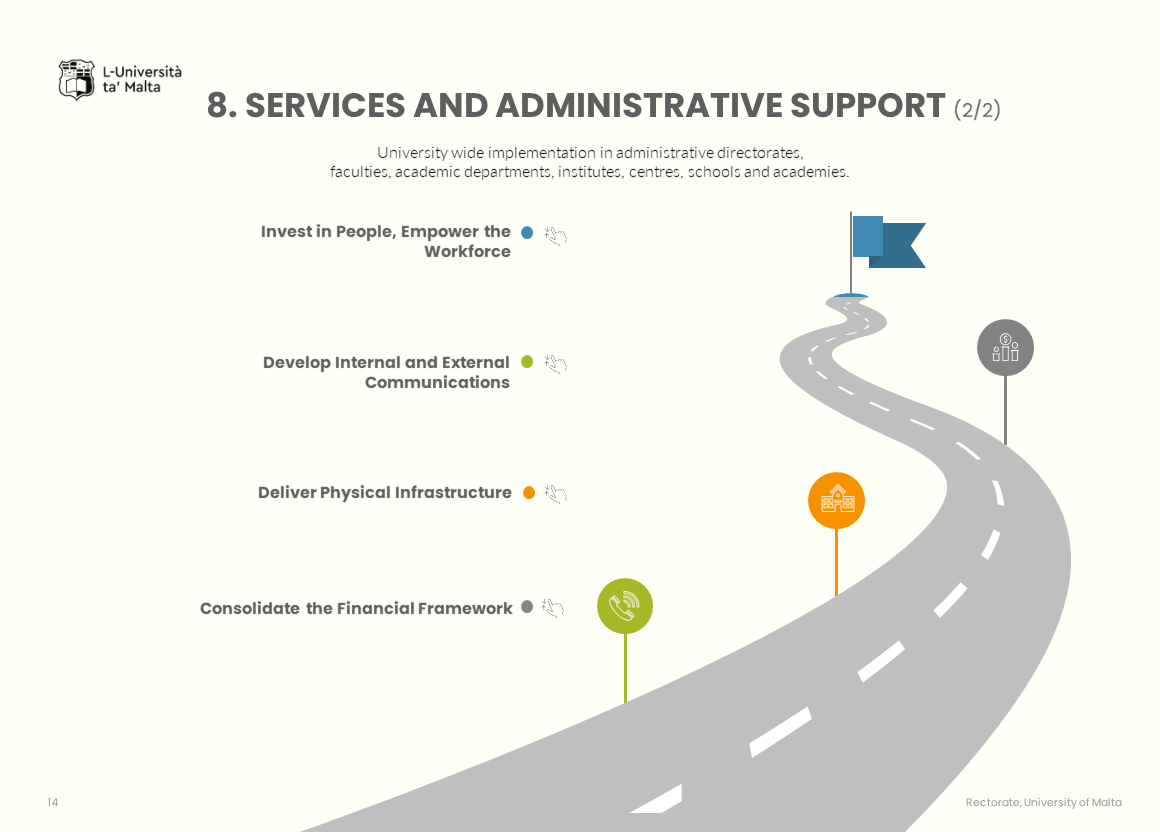

Strategic Theme VIII. Services and Administrative Support
University Strategic Plan 2020-2025
Enabling the implementation of core strategies
This section is part of the Strategic Plan 2020-2025, which sets out the goals and priorities for the University, its faculties, departments, centres, institutes and schools.
The enabling strategies of the University of Malta focus on the administrative support necessary to meet educational and academic objectives. The main areas of administrative support are represented by the administrative directorates on campus.
Main Commitments 2020-2025: Services and Administrative Support
|
Main Commitments
|
Activity Plan
|
|
|
- Allocate resources equitably through systematic processes
- Conduct evidence-based decisions on resources and sustainable initiatives
- Synergise existing expertise and diminish duplication of resources
- Promote management initiatives and practices that increase productivity and align operational processes to organisational objectives
|
|
|
- Improve student processes from enrolment to graduation
- Introduce a One-Stop Office for Student Services
- Create a dedicated unit for ceremonies, certification and records
- Increase digitisation and reduce paper-based processes
- Install automated scheduling for lectures and examinations
- Enhance the functionality of the Student Information Management System
- Increase the services available for students and staff via the University app
- Enable automated functionality for grade uploading and feedback
- Deploy a management information system for evidence-based processes
|
|
|
- Support the strategies defined for learning, teaching and social impact
- Enhance the psychological, social and physical welfare of students
- Increase social engagement and a sense of community across the campus
- Expand support for local students on outgoing international educational exchanges, internships and remote online learning programmes
- Clarify roles and responsibilities for the provision of student support
|
|
|
- Develop scholarly information resources and information literacy skills
- Reconfigure library areas to maximise study spaces and functionality
- Encourage Open Access of scientific information and publications
- Collect, preserve and disseminate the University’s research output
- Compile and implement a Research Data Management Policy
- Enhance the visibility of the Special Collections through digitisation
- Develop archival resources to preserve institutional and national memory
|
|
|
- Align the provision of IT with the Information Technology Infrastructure Library (ITIL) best-practice management framework and tools
- Provide robust, resilient and efficient technology platforms to support the current and future needs of the University
- Deploy energy-efficient systems in the provision of IT infrastructure
- Attract and retain high-calibre technical staff
|
|
|
- Attract staff of the highest calibre in different disciplines
- Retain staff through a positive and motivating organisational environment
- Stimulate a culture of knowledge-sharing among staff
- Create regular cross-departmental briefing sessions
- Formalise orientation and induction programmes for new staff
- Train staff in new leadership roles on academic and administrative processes
- Provide continuous professional development through training and enrolment to existing programmes of study
- Digitise manual processes, integrate multiple databases systems
|
|
|
- Define and develop the University of Malta’s identity and reputation
- Create high-quality websites, social channels, apps and email campaigns
- Create outreach activities to engage internal and external stakeholders
- Improve communication through mobile technology and customer relationship software
- Build communication plans on market insights and data analytics
- Create toolkits for conferences, seminars and events
- Coordinate a University-wide calendar of events and activities
- Stimulate dialogue and engagement with alumni
|
|
|
- Manage the rapid growth of capital infrastructure on campus
- Develop collaborative spaces for learning and research
- Design modular physical spaces that can be shared and adapted to the University's evolving needs
- Provide and implement guidelines for the provision of estates services
- Introduce automated systems for service requests, delivery and control
- Manage reactive and preventive maintenance across the campus
- Organise and update the roles and duties of facilities management
- Mitigate the effects of construction projects on campus life
|
|
|
- Monitor finances to react to changes in the funding environment
- Implement modern methods of operation to improve efficiency
- Empower decision-makers through regular financial reporting
- Deliver timely budgets and financial targets for sub-units
- Expand revenue streams through fee-paying professional development, executive education, online learning and research projects
- Train staff in financial administration and reporting systems
- Create contact points to support financial reporting and accounting
- Adopt circular economy principles in procurement
|



